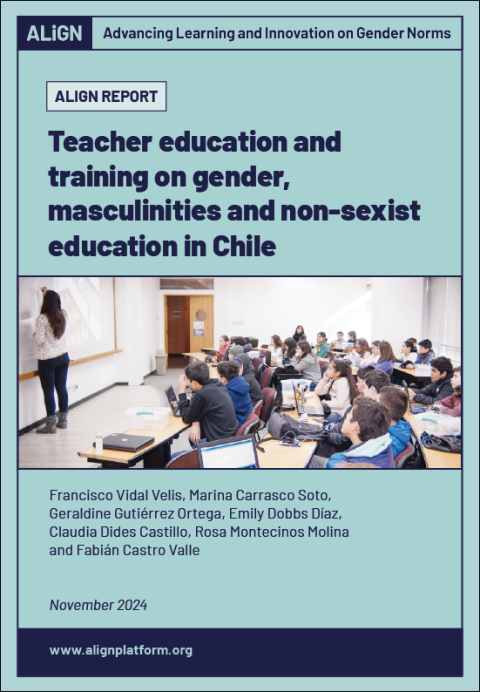
- Blog
- 8 January 2024
Gender norms: 12 insights from 2023, and what to look out for in 2024
- Author: Evie Browne, Caroline Harper, Diana Jiménez Thomas Rodriguez, Ayesha Khan, Carmen Leon-Himmelstine, Rachel Marcus, Ján Michalko, Aatif Somji, Emily Subden, Natasha Wright
- Published by: ALIGN
Backlash, politics, social movements, artivism and economics: just some of the topics covered by ALIGN in 2023. This blog looks back at 12 key issues on gender norms researched by ALIGN and ODI over the past year and looks ahead at what’s coming up in 2024.
1. Anti-gender forces undermined human rights
2023 saw a surge in research on anti-gender backlash and democratic backsliding. Our work aimed to expose how anti-gender forces undermine human rights, particularly for women and LGBTQI+ people, and to seed ideas for resistance and progress. We discussed this in-depth in an episode of ODI’s Think Change podcast featuring ODI CEO Sara Pantuliano. With well-funded and coordinated anti-gender actors reversing progressive policies in many countries, the podcast called on feminist groups to enhance coordination and encouraged increased support from donor organisations to effectively counter these worrying trends.


2. The rights to sexual and reproductive health and for LGBTQI+ people rolled back in multiple countries
It became increasingly clear throughout 2023 that LGBTQI+ people are at the sharp end of anti-gender movements. Their rights are a wedge issue, weaponised by anti-gender movements as a way to polarise debate. Our research showed an increasing backlash and democratic backsliding against LGBTI+ rights, including resistance to sexual and reproductive health and rights (SRH) and sex education. We suggested three key priorities to help protect LGBTQI+ rights: promote feminist foreign policy, respond to LGBTQI+ rights in crises and counter narratives based on fear.
The global gender backlash rolled back SRH rights in multiple countries, with access to abortion and reproductive health now restricted in many parts of Africa and Asia as well as in the United States. The weaponising of gender is likely to ramp up in 2024 as a flurry of national elections see misogynistic and autocratic candidates campaigning on the basis of nationalism, anti-democracy, anti-rights and gender.
But it is not all negative: some countries legalised same-sex marriage and human rights defenders took a stand for LGBTQI+ rights protection. There was also progress on addressing violence, including female genital mutilation/cutting (FGM/C) highlighted in ODI's joint research project with UNICEF which uncovered new strategies to end FGM/C by working with grandmothers.
3. It was a terrible year for women living in conflict or post conflict societies
Women in conflict situations faced an appalling year, including those in Afghanistan, where the Taliban continues to persecute women by denying them access to education, employment and public spaces. Our work, in partnership with Afghan research organisation DROPS, compiles and amplifies Afghan women’s voices via a report into their deteriorating mental health. Forthcoming work will explore how the Taliban’s repression and lack of educational opportunities is linked to increased child and early marriage. The marriage of girls within the community at an early age is also used as a strategy to prevent their forced marriage to Taliban leaders. As feminist movements have stressed, gendered dimensions of insecurity, such as forced marriage, need to be more central in action to counter insecurity in post-conflict settings.
4. It was a challenging year for Feminist Foreign Policy
Strong Feminist Foreign Policy (FFP) requires feminist principles to be deeply embedded into our societies and institutions. While there was some progress as the governments of Chile, Germany and Scotland launched FFP and new approaches to external relations, the future of FFP in many countries is uncertain. Rescinding of FFP in Sweden and victories for right-wing political parties in Argentina and the Netherlands have raised concerns over the future of FFP. As we highlighted in our Where Next for Feminist Foreign Policy? briefings, ensuring FFPs are sustained requires embedding feminist principles in our own societies and institutions.


5. Care work remained a significant barrier to women’s equal economic participation
One key way to shift gender norms around care is by encouraging greater participation by men. In March we opened up a podcast conversation featuring Gary Barker, Equimundo co-founder, Khawar Mumtaz, a leading Pakistani feminist scholar and activist, and ODI’s Sara Pantuliano. As highlighted by our October policy brief on this issue, governments can take the lead in shifting the gendered norms of care. The brief outlines concrete steps that policymakers can take to tackle discriminatory norms: valuing care as a social good and promoting its shared responsibility. The most ambitious and exciting way to do this is through integrated national care systems – and we look forward to researching this theme in greater depth in 2024.
6. Politics, even at the local level, was plagued by masculine norms
We learnt a lot in 2023 about the similarities of patriarchal tactics that keep women out of positions of political power across different countries and political systems. Research by our partners in Nepal, Nigeria, Peru, and Zimbabwe generated new evidence on the barriers that women face at the sub-national and local levels. These patriarchal norms can be seen in online violence, media-facilitated harmful narratives, and in the undermining of women’s promotions by male politicians. So, while more women are represented in local politics than at national levels worldwide, they are still far from being included equally and equitably in governance structures.


7. There was growing concern about misogynistic online influencers
Schools, families and the media have – belatedly – started to recognise the popularity of Andrew Tate and other misogynistic influencers. In January 2023, our blog about the factors that are fuelling the growing popularity of these influencers highlighted the intersections of patriarchal gender norms, the incentive structures of technology companies, and biases embedded in digital media platform algorithms.
We will be launching a new report and policy brief on this issue in February. The research captures evidence from studies on the impact of social media use on gender norms among adolescent boys to highlight the interplay between pre-existing attitudes and the type of content individuals access. We will also work with partners in Mexico over the next year to better understand how adolescents use and respond to the gender inequitable content they encounter online.
8. There was a renewed focus on education and gender norms
Education systems came under scrutiny in 2023 as spaces where gender norms can either be reinforced or challenged. Two ALIGN projects examined this in different ways with results due out in the coming months. The first focuses on entry points in education systems to promote gender-equitable values, particularly among boys, looking at classroom-level practice, curricula reform, teacher education and sector planning. Research from Chile and Colombia explores teachers’ experiences of gender-sensitisation initiatives and how they use these in their classrooms. The second looks at how schools have become a battleground for different visions of gender equality and societal values. We have mapped two main tendencies: ‘anti-gender’ groups who challenge sex education and the inclusion of content on LGBTQI+ and sometimes reproductive rights; and religious/political groups who want to restrict discussion of gender relations in curricula and learning materials, segregate classrooms by gender, or to keep girls or LGBTQI+ students out of school completely. We have started to document promising practices to resist this backlash.
9. Feminist artivism contributed to gender justice
ALIGN launched its work on art activism, or artivism, and feminist struggles in 2023. Our gorgeous series of illustrations aims to capture feminist artivism as a contributor to gender justice. Artivism can be a powerful way to directly contest harmful gender norms and nurture new and more equitable gender norms, given the emotional impact of art, its ability to highlight contradictions, its appeal to the imagination and its stimulation of dialogue. Our blog How does artivism contribute to ending gender-based violence? explored this in more detail in relation to gender-based violence (GBV) and our photo story From drama to murals: a visual journey of feminist artivism against GBV showcased amazing work by feminists worldwide. We will consolidate this research project with more publications and empirical research with partners this year.
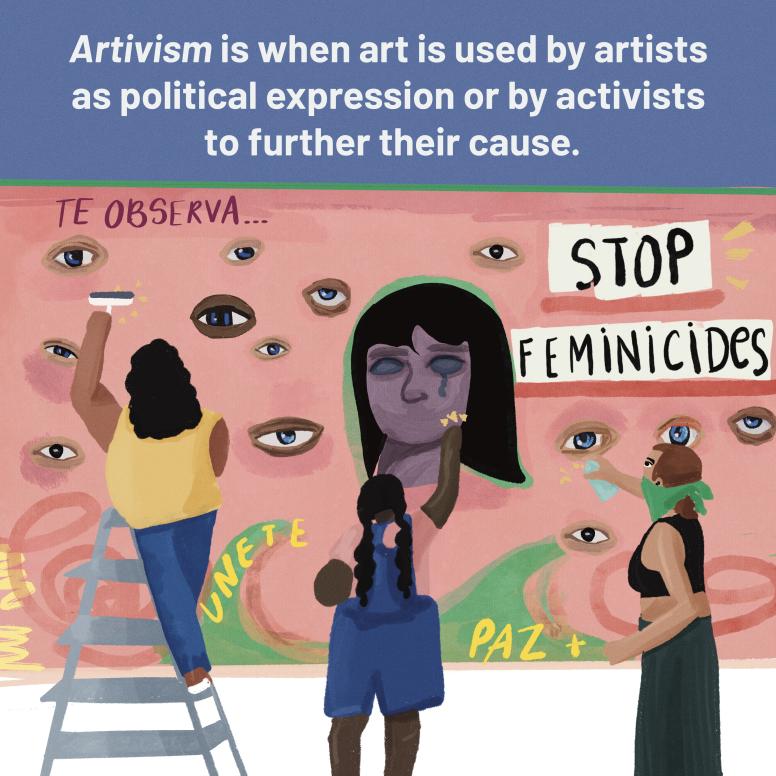

10. Gender norms continued to play a key role in decisions to migrate
Through work with MIDEQ (Migration for Development and Equality) Hub, we learned more about the role of gender norms on migrant perceptions, knowledge and decision-making. For example, ODI’s review on the role of social protection programmes on the decision to migrate found that previous exposure to migration and prevailing norms can influence the aspiration to migrate, as well as decisions about which members of the household migrate or stay put. We are now conducting further research into the impact of gender norms on the decisions of Haitians who migrate to Brazil.
11. Youth led the way at Women Deliver 2023
The Women Deliver conference took place in July in Kigali, Rwanda, and ALIGN was there. Backlash was one key focus of the conference, and ALIGN’s briefing paper Facing the backlash: what is fuelling anti-feminist and anti-democratic forces? could not have been more timely, given the discussions on the anti-gender movement. In two blogs we discussed ‘tackling the enemy in the room’ – a reference to the infiltration of anti-gender actors into feminist spaces – and the impact of youth delegates at the Women Deliver conference, with 30% of the 6,300 participants being under 30. This amazing collection of young activists helped drive discussions on the future of funding, the decolonisation agenda, SRH, and many other vital topics. Also at the conference, ALIGN launched a 10 ways to transform gender norms toolkit, highlighting five critical areas for investment and five organising spaces in a beautifully illustrated guide.
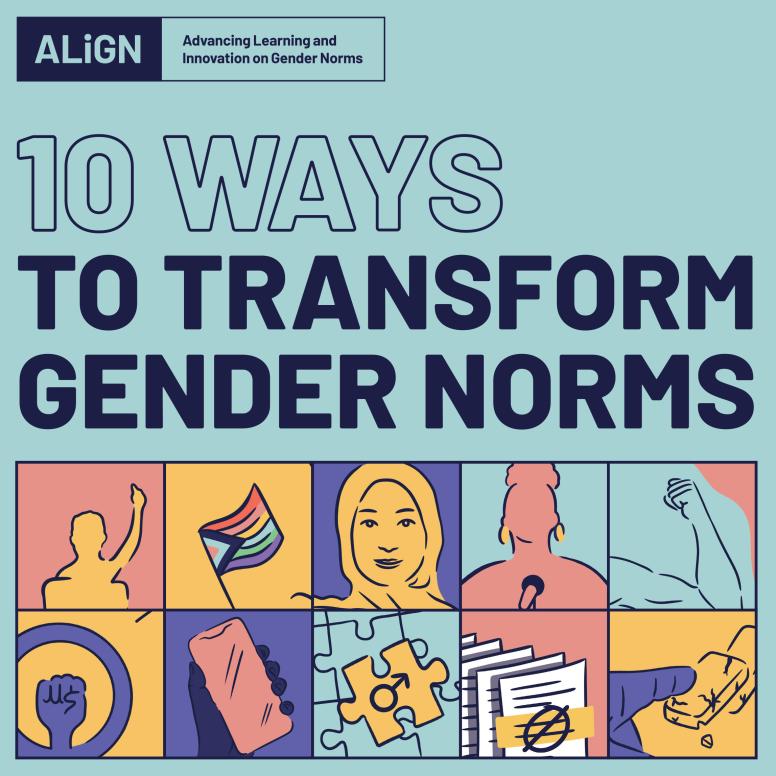

12. Norms around women’s economic empowerment needed to shift
Looking ahead, we are about to launch our in-depth report on Transforming gender norms for women’s economic rights and empowerment. Gendered economic inequalities have shifted far more slowly than other areas of women’s rights. Successes in some areas – such as financial inclusion – are to be celebrated, but women’s participation in the workforce worldwide lags stubbornly around 20 percentage points behind that of men. Our report will explore how persistent inequitable gender norms contribute to these inequalities and what can be done to shift them.
In 2024, we are also exploring how women can be more economically involved in opportunities afforded by climate adaptation and will be looking further at climate related eco-feminist organising. With around 64 national and additionally EU elections this year we will be analysing the political weaponisation of anti-gender backlash and we will be releasing new research on education, LGBTQI+ organising against backlash, and more.
Watch this space too for reports and other content to be released to coincide with Davos in January, International Women’s Day and the 68th session of the Commission on the Status of Women (CSW68) in March, and Safer Internet Day in October, to name just a few.
Tweet this blog
Coffee break read - > Gender norms: 12 insights from 2023, and what to look out for in 2024.
New blog by @align_gender
- Tags:
- Backlash, Political representation and mobilisation, Social movement, Sexual and reproductive health, LGBTQI+, Education, Artivism, Economic empowerment
- Countries / Regions:
- Global
Related resources
Report
14 April 2025
Published by: ALIGN, IfD
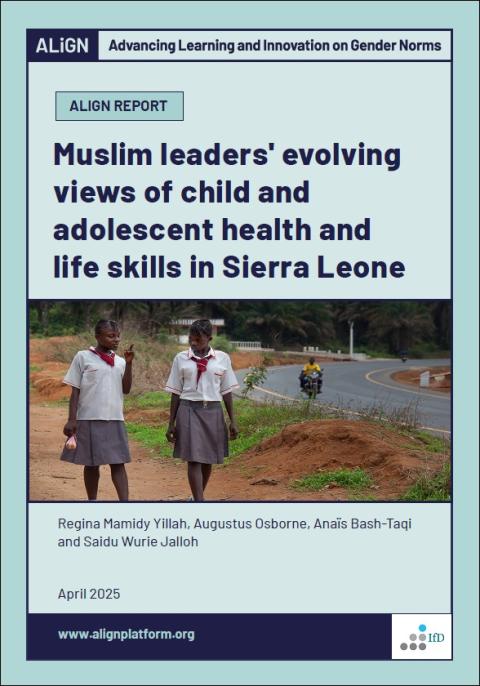
Report
26 March 2025
Published by: ALIGN, Aahung
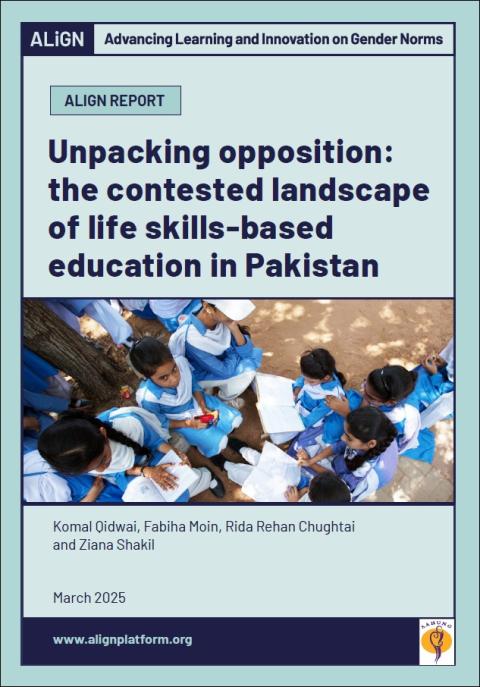
Report
26 March 2025
Published by: ALIGN, CIEDUR
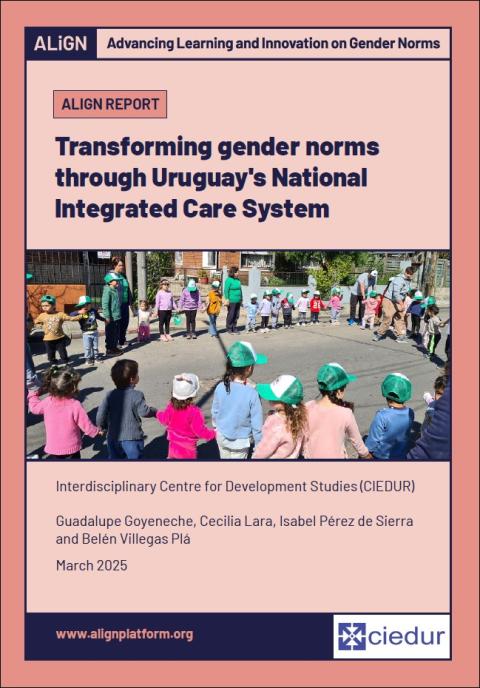
Report
20 March 2025
Published by: ALIGN, FAADEV
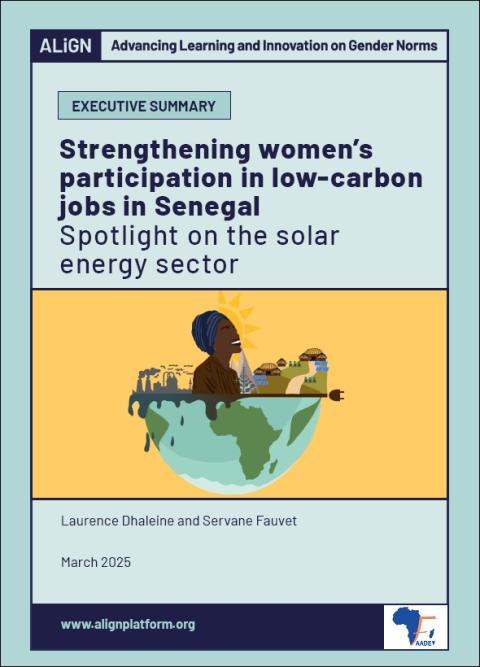
Report
20 March 2025
Published by: ALIGN, Restless Development
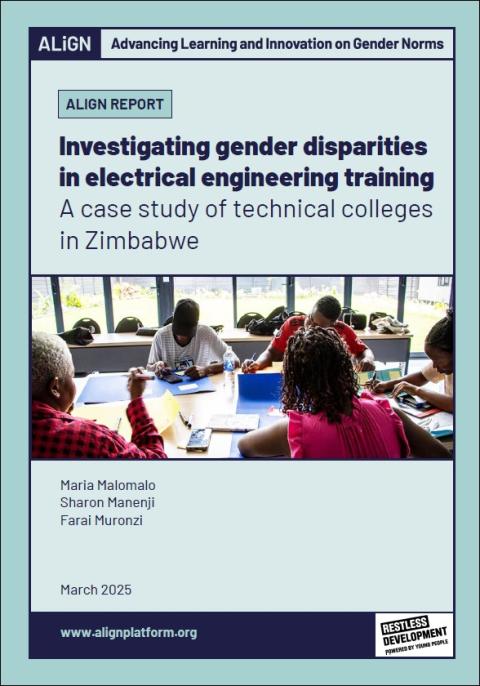
Report
5 March 2025
Published by: ALIGN

Report
12 February 2025
Published by: ODI
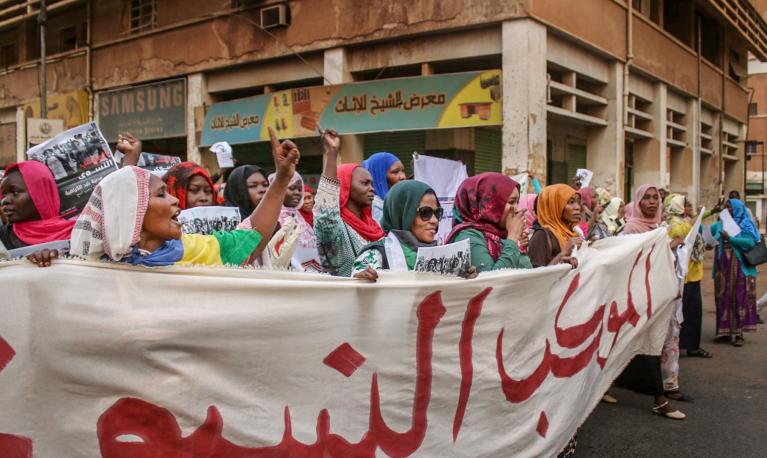
Blog
10 February 2025
Published by: ALIGN

Blog
19 December 2024
Published by: ALIGN

Blog
5 December 2024
Published by: ALIGN
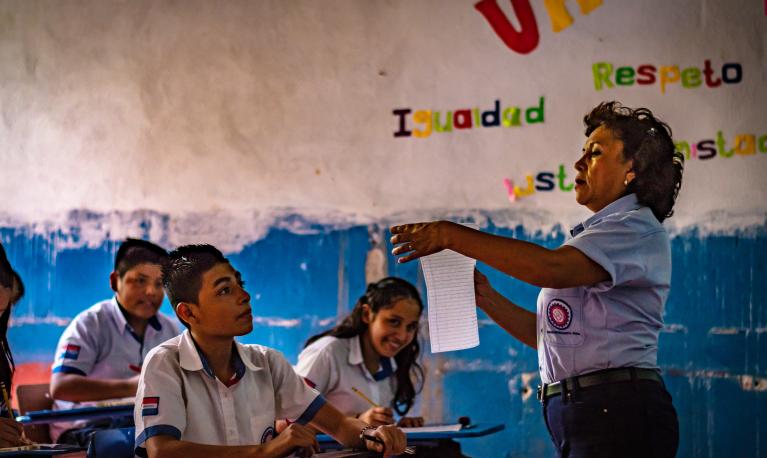
Report
28 November 2024
Published by: ALIGN

Report
20 November 2024
Published by: ALIGN
